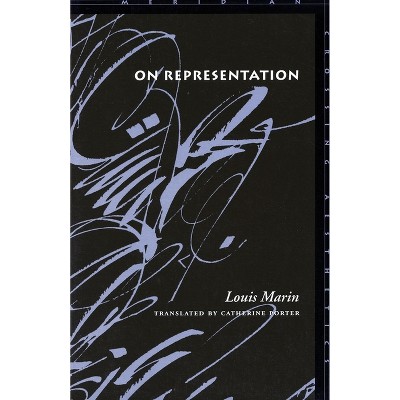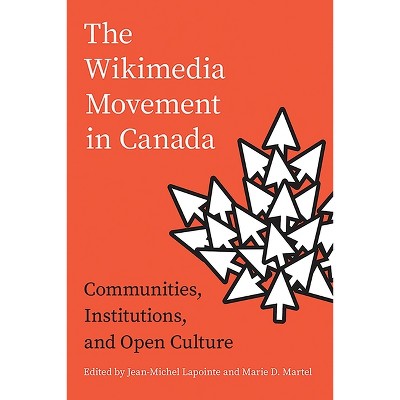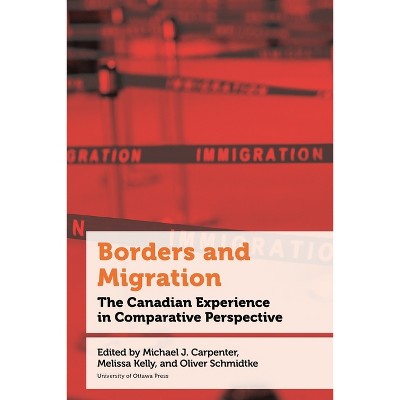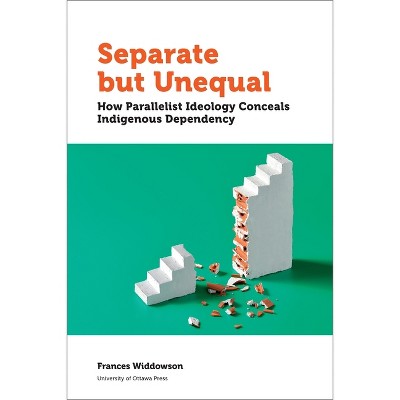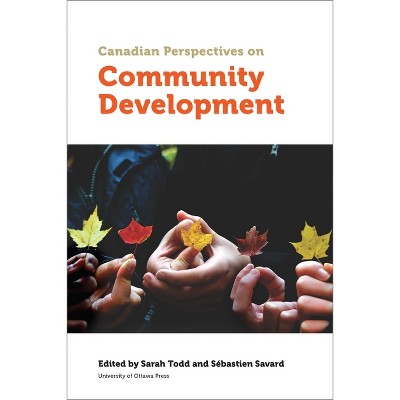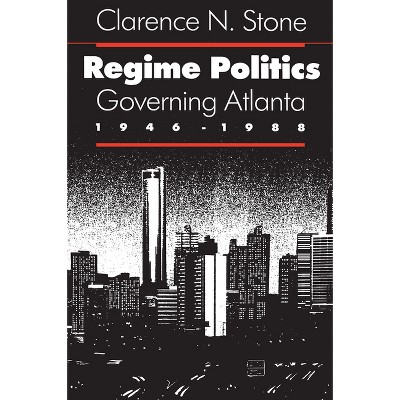Sponsored

Canada's Official Languages - (Politics and Public Policy) by Helaina Gaspard (Paperback)
In Stock
Sponsored
About this item
Highlights
- Canada's official languages legislation fundamentally altered the composition and operational considerations of federal institutions.
- About the Author: Helaina Gaspard, PhD, is Director, Governance and Institutions at the Institute of Fiscal Studies and Democracy at the University of Ottawa.
- 162 Pages
- Political Science, Public Policy
- Series Name: Politics and Public Policy
Description
About the Book
This book is the first in-depth study of the implementation of official languages policy in the federal public service from 1967-2013 in the National Capital Region. Its analysis of language policy confronting actors, ideas, and institutions explains the state of the language of work in the public service today.Book Synopsis
Canada's official languages legislation fundamentally altered the composition and operational considerations of federal institutions. With legislative change, Canada's public service has achieved the equitable representation of its two official languages groups, provided services to the public in both official languages, and has codified rights for public servants to work in their official language of choice. On paper, the regime is robust. In practice, there is a persistent divergence between policy and practice, as English dominates as the regular language of work in the federal public service.
Through an historical institutionalist lens based on extensive archival research and semi-structured interviews, Gaspard shows that the implementation of official languages policy in the federal public service from 1967-2013 could not challenge the predominance of English as the operating language of the federal public service.
The analysis of the roles of actors, ideas and institutions that influenced the policy implementation process show that a lack of structural change, inadequate managerial engagement, and a false sense that both official languages are equally ingrained in the public service explain the persistence of English as the dominant language of work.
Review Quotes
Helaina Gaspard is a political scientist, and director for governance and institutions at the Institute of Fiscal Studies and Democracy at the University of Ottawa. In this study of Canadian official language policy, she focuses not on its implementation in the services provided to the public - although she does give a useful timeline of how their statutory and policy framing has evolved - but on implementation within the federal public service itself: most concretely, regarding employees' individual right to work in the official language of their choice.
The study begins with an exploration of potential theoretical models for such an enquiry (hinting strongly at the book's origins in doctoral research), opting for a fusion of two approaches from the political-science toolbox: historical institutionalism and layering. Both approaches centrally incorporate a historical perspective, the former concentrating on critical junctures - moments of major and sudden change and reorientation, such as the Official Languages Acts of 1968 and 1988, and the Charter of Canadian Rights and Freedoms of 1982 - and the latter on ways in which a sequence of smaller events and innovations 'layer onto' and modify prevailing practice in complex and sometimes contradictory ways: successive policy and strategy statements, court cases and conflict resolutions. Among the interesting insights that her approach highlights is how the Charter shifted the focus in the federal government's pursuit of bilingualism away from political compromise to questions of individuals' civil rights. Gaspard charts how Pierre Trudeau set out to defuse the threat of Québec separatism by enshrining bilingual rights (in practice, francophone rights) as federally guaranteed individual rights across Canada rather than as a concession to collective demands by the only majority-francophone province. This quintessentially liberal focus on the individual rather than the collective was then given legal reinforcement by the Charter. Moreover, individual concerns, e.g. for professional career prospects, underlay many of the tensions for individual employees (whether anglophone or francophone) within the federal service; and individual managers' lack of interest and/or reluctance in addressing their employees' language rights also slowed or hampered official policy implementation.
Disappointingly, but understandably, given the theoretical approach, there is mention but surprisingly little exploration of practical feasibility issues in rejigging an overwhelmingly monolingually anglophone institution to function in a genuinely bilingual manner. This is a work of political science and organisational theory rather than of language policy, and there are strikingly few references to language policy research literature. Nonetheless, the resulting study brings a valuable different perspective to language policy research as well, which, as Gaspard notes, has tended to focus on how language policy innovation is embedded in sociopolitical and cultural context and on how it impacts on society and the public, and to overlook the significance of institution-internal factors in innovatory policy implementation.
"Compelling and convincing" This book is situated at the confluence of public administration and language policy and manages to offer an important and original contribution to both fields. (...) Gaspard develops a compelling analytical narrative around institutionalism, path dependency and layering to explain the shortcomings of the successive language reforms and the role of various actors within the state apparatus. (...) This book should be included in reading lists and research on public administration in Canada. It convincingly illustrates the amount of time and effort devoted to language reform within the public service in Canada, which has not received the necessary attention from the field. It also has the potential to foster comparative studies with other countries that aim to have a linguistically representative bureaucracy. Gaspard offers a unique perspective that must not go unnoticed.-- "PUO-UOP"
About the Author
Helaina Gaspard, PhD, is Director, Governance and Institutions at the Institute of Fiscal Studies and Democracy at the University of Ottawa.Shipping details
Return details
Frequently bought together




